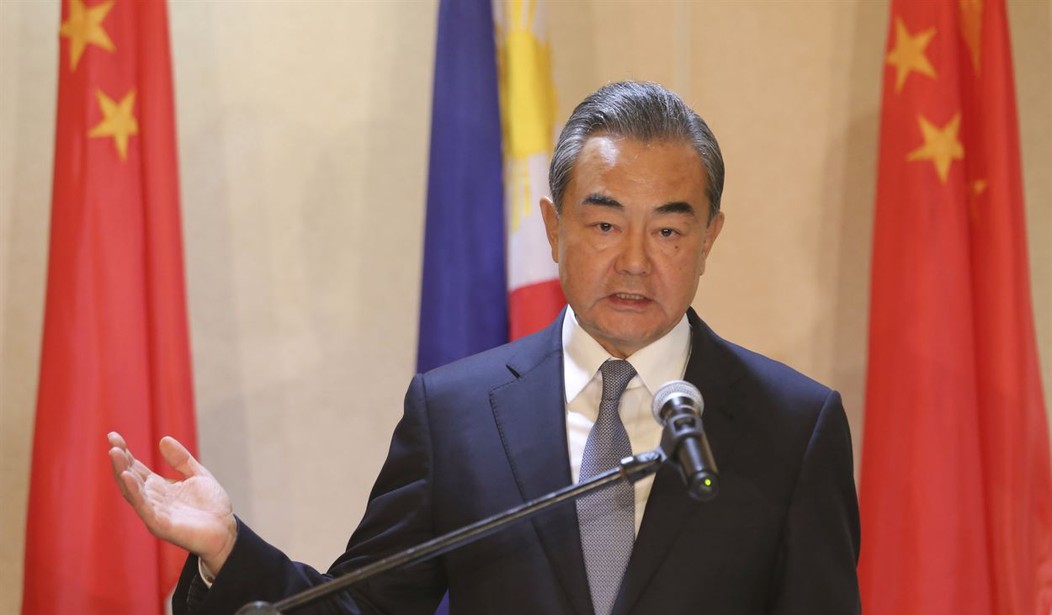On April 4, the prickly Philippines president, Rodrigo Duterte, warned China that his country would react militarily if the China Coast Guard and fishing vessels continue to "swarm" and surround a small Filipino islet in the Spratly Islands, Pag-asa Island (also called Thitu). Duterte's warning followed a March 29 formal diplomatic protest the Philippines delivered to China's embassy in Manila.
Beijing's aggressive South China Sea territorial grab relies on a bully's bilateral perception of power: strong China versus weak neighbor. China is an emerging great power with global economic clout and a powerful, modernizing military. In comparison, the Philippines is vulnerable militarily. It is also anemic economically, and it owes China so much money that both Duterte (belatedly) and his political opponents fear a Chinese debt trap. China could seize Filipino assets for nonpayment of loans.
Nevertheless, the usual loan shark doesn't seize sovereign territory, for it's an act of war. Hence Duterte's blunt vow to spill blood in defense of Filipino sovereignty. "I will not plead or beg," he said to Beijing. "But I am just telling you lay off the Pag-asa because I have soldiers there." OK. Then Duterte added some extreme heat: "If you touch it, that's another story. Then I will tell my soldiers 'prepare for suicide missions.'"
Whether brash or rash, or both, a pledge to respond with suicidal ferocity shrinks diplomatic wiggle room down to ultra-slim or none.
Understand Duterte has a record for bold domestic leadership undermined by reckless declarations. For example, Duterte entered office in late 2016 and indicated he would seek rapprochement with China, possibly at the expense of the Philippines' alliance with America.
Recommended
Yet China's unabated imperialist policy of South China Sea expansion is far more audacious politically and -- considering the regional and international implications of a rogue great power -- far more reckless strategically than Duterte's worst behavior.
China's prior theft of Filipino maritime territory and resources is a fact. In 2016, the Hague's arbitration tribunal ruled that China had intruded on Filipino territory when it seized islets in the Spratlys, constructed artificial islands on reefs well inside long-recognized Filipino territory and conducted illegal fishing operations. The tribunal relied heavily on the UN Convention on the Law of the Sea treaty (UNCLOS), which China claims to recognize and support.
Ah, but The Perception. Knowing the Philippines and the UN couldn't enforce the verdict, and judging the Obama administration as unwilling to support the court's decision, Beijing ignored the Hague's verdict and continued its predatory behavior.
Beijing's dismissal of Duterte's statement as theater reprises "ignore the verdict."
Still, Beijing's geo-strategic calculators should have expected Manila to eventually threaten to escalate and risk war.
Manila's threat to escalate isn't bluster. A multilateral alternative backed by a reinvigorated great power now challenges Beijing's bilateral bullying.
During a March 1 conference in Manila, U.S. Secretary of State Mike Pompeo sketched Washington's view of Beijing's bullying, saying, "the Philippines depends on free and unobstructed access to the seas. China's island-building and military activities in the South China Sea threaten your sovereignty, security and, therefore, economic livelihood, as well as that of the U.S. ... Any armed attack on Philippine forces, aircraft or public vessels in the South China Sea will trigger mutual defense obligations under Article IV of our Mutual Defense Treaty."
Pompeo didn't speak rashly. He based his statement on a 68-year-old treaty signed when Harry Truman was president and Donald Trump was 5 years old.
"Cabbage strategy" guides Beijing's Pag-asa gambit. In May 2013, a Chinese general boasted China would secure its South China Sea claims by wrapping them with coast guard ships, construction barges, fishing boats and military garrisons akin to protective cabbage leaves.
This strategy bets victims will accept Chinese bullying.
Are all bets off?
If Duterte's 2016 rapprochement offer was a tough guy's diplomatic attempt to make a deal that ended Chinese expansion, then bitter history may show that Beijing blew an opportunity.
To find out more about Austin Bay and read features by other Creators writers and cartoonists, visit the Creators Syndicate webpage at www.creators.com. His latest book, "Cocktails from Hell: Five Wars Shaping the 21st Century" (Bombardier Books), is available now.
COPYRIGHT 2019 CREATORS.COM























Join the conversation as a VIP Member